Boots for Business program trains veterans for business world

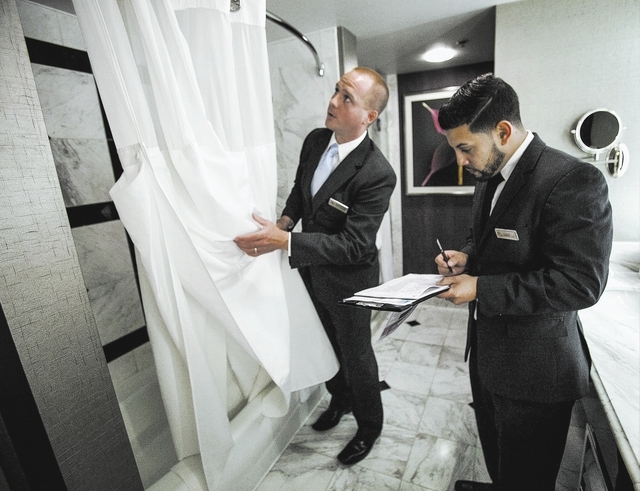
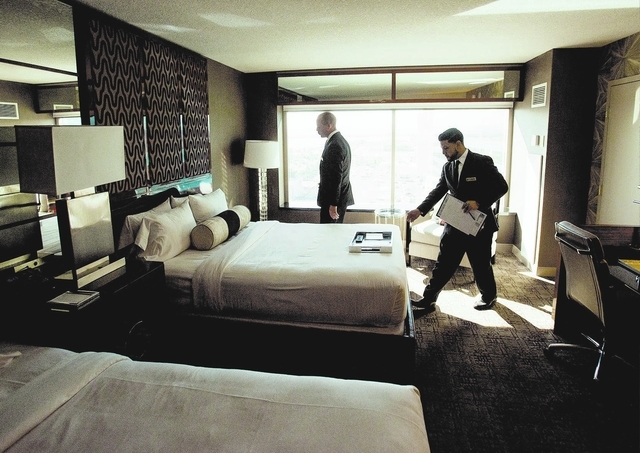
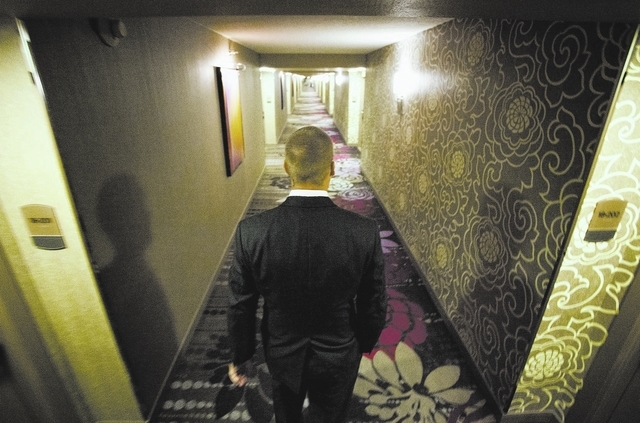
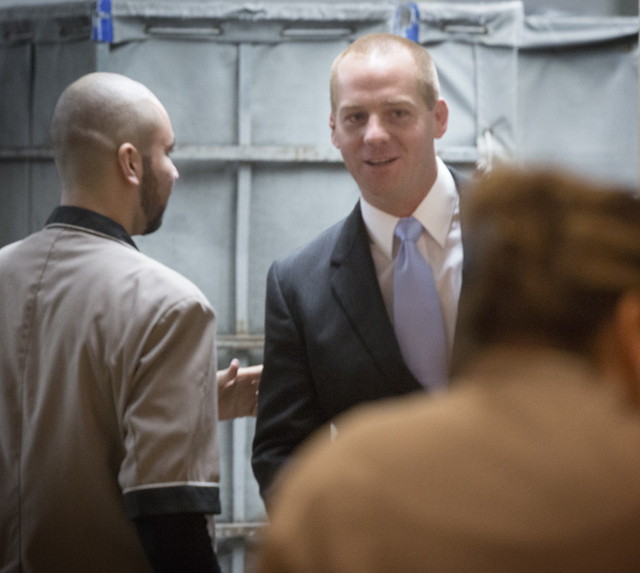
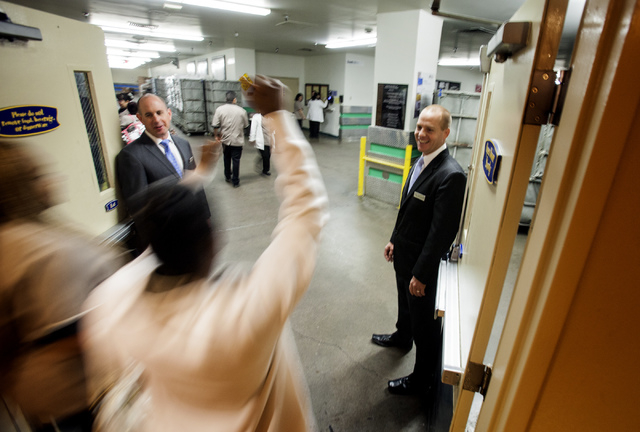
Things were not working out for Brian Tierney, a Marine, a war veteran, an alpaca rancher, a new dad. So he decided to go into housekeeping.
It was not a one-step process. It took years. It took a corporate vice president who wanted to help fix a problem. It took the right timing.
“The more I looked into it, the more I thought I could have a career in it,” Tierney said.
This started in the days before the Sept. 11, 2001, terrorist attacks. Back then, Tierney was a high school kid who partied too much.
He grew up the youngest of three boys in Westfield, Mass., which sits in the middle of a triangle created by Boston, New York, and Albany, N.Y.
He went to a college preparatory high school, but didn’t see himself as college material. He was too undisciplined.
So he joined the Marines right before the terrorist attacks.
He was 18 years old. His folks didn’t like it at all. But he knew he had done the right thing.
“I kind of needed to grow up,” Tierney said.
He loved it. Really loved it. He loved the structure and the discipline and the mentoring. It taught him to be a man. Eventually, Tierney said, his parents saw the changes in him and decided that he had, in fact, done the right thing.
Even though he was in communications, which meant he helped build computer networks, he chose to serve in the infantry.
Soon, he went to war and served in Fallujah, Iraq. This was during Operation Vigilant Resolve, the U.S. military’s effort to retake that city from the enemy after the killing of four private security officers there.
He served during Operation Phantom Fury, which ended up having some of the heaviest fighting in the war.
And then, after a while, it was over. Tierney was honorably discharged, and he flew home to help out with the family business: alpaca ranching.
An alpaca is a ridiculous looking, llama-like animal native to South America. They are prized for their wool. Tierney’s family had been in the business since the early 1990s, and it had been doing well. They were primarily breeders, selling prized alpacas to other people.
But the housing market crashed in 2007, and no one had any money anymore for things like buying alpacas.
And then Tierney met a girl. She had a son. It got serious. Suddenly, Tierney was responsible for someone other than himself.
He joined the Reserves to get some income. He got married. Had another son and named him after the man who had been his mentor in the Marines and died after stepping on a land mine. He moved his family to California for more military training. Had a daughter.
He did some coaching and some charity work, which is where everything changed.
He went to MGM Springfield, a planned, $800 million resort and casino in Massachusetts, looking for a donation.
He got to talking to the people there. His status as a war veteran came up. Someone mentioned a new program the company had just started, Boots to Business.
MGM executive Michelle DiTondo started the program last year. She is, in effect, in charge of the company’s 62,000 employees, including the 50,000 in Las Vegas. She is the company’s vice president for human resources.
A while back, she got a chance to serve on the board of the local Red Cross chapter. She was talking to Red Cross people and was amazed at how much the charity did for veterans; her dad is an Air Force vet.
The topic of suicides came up. This has been a huge problem for vets coming back from war. The Department of Veterans Affairs released a study last year estimating that 22 vets kill themselves every day. For many, the transition from war to regular life is difficult. Unemployment is high, too.
All of this gave DiTondo an idea. MGM is so huge, there are always hundreds of job openings somewhere in the company. What if they could fill some of those jobs with war vets?
DiTondo got MGM to give the local Red Cross chapter a $25,000 grant to help retrain veterans. It would be like their college internship program, only at a management level.
She said veterans often have highly desirable characteristics such as discipline and leadership, but sometimes lack specific skills for the job.
Some just don’t know how to write a résumé properly, focusing on skills that are great in a war, but not so great in a corporate environment.
“We don’t have a lot of jobs at MGM Resorts that deal with weapons,” she said.
It works like this: The Red Cross helps recruit veterans into the program. MGM hires the vets and trains them for management level jobs. They get a mentor who is an employee and also a military veteran. Four days a week, they do their regularly scheduled work. Once a week, they take classes, some of them focusing on the transition to civilian life.
DiTondo said the program did so well that company officials decided to go bigger. They gave a $250,000 grant to the national Red Cross and expanded it. She said they are looking to expand it even more.
This is where Tierney comes in.
He looked into the program. He liked what he saw. He applied and was accepted and he moved to Las Vegas, all by himself. He started work on Oct. 1 and hopes to have his family here by Christmas, when he officially graduates from the program and becomes just like all the other MGM management employees.
Tierney is training in housekeeping, and he said he loves it. It’s not all that different from the Marines, he said, with its focus on order.
Contact reporter Richard Lake at rlake@reviewjournal.com or 702-383-0307. You can find him on Twitter at @richardlake.












